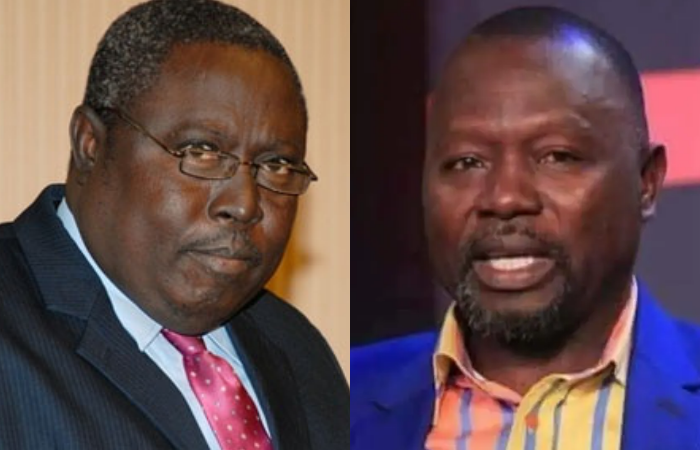Martin Amidu’s accusations against Attorney-General Dominic Ayine center on a profound conflict of interest stemming from Ayine’s prior representation of Dr. Kwabena Duffuor and other defendants in the same criminal case he now oversees as the state’s chief prosecutor. This prior involvement, Amidu argues, casts a long shadow over Ayine’s objectivity and impartiality in the case, particularly given his recent decision to enter a nolle prosequi, effectively halting the prosecution. Amidu contends that this action constitutes an abuse of power and creates a substantial likelihood of bias, undermining the integrity of the legal process. He emphasizes the ethical and legal implications of Ayine’s dual roles, past and present, in the proceedings, asserting that such a conflict demands transparency and recusal.
The core of the conflict lies in Ayine’s previous role as legal counsel for Dr. Duffuor, the primary accused, and other defendants during the initial stages of the case. This prior attorney-client relationship establishes a pre-existing duty of loyalty and confidentiality towards these individuals, a duty that directly clashes with Ayine’s current responsibility to prosecute them on behalf of the state. Amidu posits that this conflict creates an untenable situation where Ayine is, in essence, prosecuting individuals he previously defended, raising serious questions about his ability to objectively assess the evidence and pursue justice without the influence of his prior commitments. The very act of entering a nolle prosequi in this context, Amidu suggests, appears tainted by the specter of favoritism and raises suspicions of impropriety.
Amidu’s criticism extends beyond the mere existence of the conflict to encompass Ayine’s lack of transparency regarding his prior involvement. He asserts that Ayine had a professional and ethical obligation to openly disclose his previous representation of the defendants to the court and other involved parties. This disclosure, Amidu argues, would have allowed for appropriate scrutiny of the potential conflict and facilitated a more informed decision-making process. By failing to disclose this crucial information, Ayine deprived the court and the public of the opportunity to assess the potential for bias in his actions. This lack of transparency, according to Amidu, further erodes public trust in the impartiality of the legal system.
Furthermore, Amidu criticizes Ayine’s procedural approach in terminating the case. He contends that Ayine circumvented established legal processes by unilaterally entering a nolle prosequi rather than allowing the trial court to evaluate any potential plea bargain or compensation agreement. By taking this action, Amidu argues, Ayine usurped the court’s authority and prevented a transparent and judicially supervised resolution of the case. This procedural irregularity, combined with the underlying conflict of interest, raises serious concerns about the fairness and legitimacy of the outcome.
The implications of Amidu’s accusations extend beyond the specifics of this particular case to touch upon broader issues of prosecutorial ethics and the integrity of the legal system. His arguments highlight the importance of impartiality and the avoidance of even the appearance of impropriety in the conduct of legal proceedings. The principle of recusal, which requires individuals to step aside from cases where their impartiality could reasonably be questioned, is crucial to maintaining public confidence in the fairness and objectivity of the judicial process. Ayine’s alleged failure to adhere to this principle, Amidu suggests, undermines the very foundations of justice.
Amidu’s public pronouncements on this matter serve as a stark reminder of the importance of ethical conduct and transparency within the legal profession, particularly for those holding positions of public trust. His critique calls for a renewed focus on ensuring that prosecutorial decisions are made free from the influence of personal relationships or prior commitments. The allegations against Ayine underscore the need for robust mechanisms to address conflicts of interest within the legal system and to safeguard the integrity of the judicial process. The controversy also highlights the role of public scrutiny in holding public officials accountable and ensuring adherence to ethical standards.


